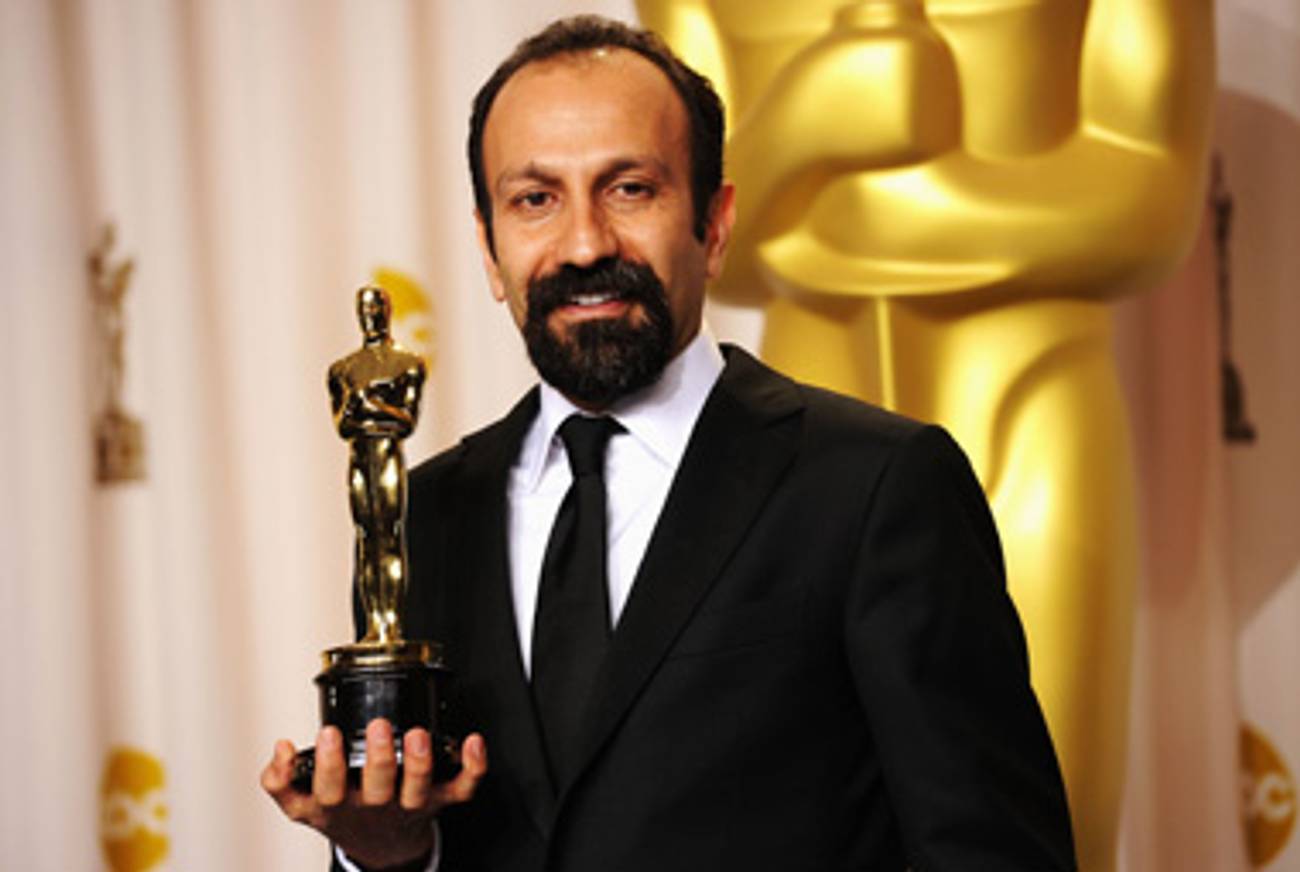2 or 3 Things I Know About ‘A Separation’
The Iranian film beat the Israeli film and the Polish Holocaust film




1. The best film won. Footnote is lovely, but it never soars above the modest confines of a touching family drama. In Darkness is artful, but it is every bit the kind of retrograde, emotional Holocaust drama we’ve seen a hundred times before. A Separation is a masterpiece, the sort of work that nudges its viewers into emotional realms rarely explored by movies anymore.
2. This isn’t about Israel versus Iran. A Separation’s director, Asghar Farhadi, got it just right when he said last night, “At the time when talk of war, intimidation, and aggression is exchanged between politicians, the name of Iran is spoken here through her glorious culture, her rich and ancient culture that has been hidden under the heavy dust of politics.” And Israel, rightfully or not mentioned in the press these days mainly in the context of the obtuseness of its leaders or the savagery of its soldiers, also was being recognized for a beautiful film that explored family and scholarship. It was a rare moment of relevance in a ceremony otherwise very much showing its age; for a moment, the parade of platitudes was interrupted by a speech reminding us that film actually can transcend boundaries, bring people together, and succeed where a thousand other attempts at dialogue have failed.
3. There will always be some who decry the fact that an official Iranian press release celebrating the award referred to the Israeli film as produced by “the Zionist regime,” which, sure, probably isn’t what should happen. And there will always be narrow-minded ninnies who will stress that Farhadi claimed to be too ill to show up to a pre-Oscars press conference with his fellow filmmakers, allegedly to avoid sharing the stage with Israel’s representatives. The bigots are missing two important points. First, Iran’s filmmakers are operating under tight governmental restrictions and Israel, whose Knesset is promoting legislation designed to limit the creation of art work critical of the government and its policies, should not cast the first stone here. And second, besides being a stellar film, A Separation could easily be seen as the best anti-Iranian propaganda to emerge in years. This is a movie whose plot is set in motion after one of the main characters is so fed up with life in Iran that she wants to leave. Anyone who witnesses its depiction of the country’s byzantine justice system, socioeconomic unease, and overall existential bleakness would be hard-pressed to walk away with anything but the most uncharitable of thoughts towards the current Iranian regime.
Asghar Farhadi’s Oscar Speech: The Best of the Night [Slate Browbeat]
Liel Leibovitz is editor-at-large for Tablet Magazine and a host of its weekly culture podcast Unorthodox and daily Talmud podcast Take One. He is the editor of Zionism: The Tablet Guide.